Malena (2000)
Directed by: Giuseppe Tornatore
Written by: Giuseppe Tornatore, Luciano Vincenzoni
Starring: Giuseppe Sulfaro, Luciano Federico, Matilde Piana, Monica Bellucci
HCF REWIND NO. 227: MALENA [Italy 2000]
AVAILABLE ON DVD AND BLU-RAY
RUNNING TIME: 107 min, 92 min
REVIEWED BY: Dr Lenera, Official HCF Critic
The town of Casteculto, Sicily, in 1940 during World War II just as Italy enters the war. A young boy, 12-year old Renato, gets a new bike, and sees the lovely Malena who has moved to the town. Her husband has gone to fight in Africa and Malena is left alone with her father, an elderly and almost deaf man. Renato becomes infatuated with Melena, whose beauty gets the attention of all the local men. Then her husband is reported dead, and Malena begins to be shunned by the townspeople as women spread terrible rumours, men encourage the rumours by lurking around the poor widow who just wants to be left alone, and Renato becomes totally obsessed with her…
Malena is one of the best screen depictions of that time in most of our lives when our sexuality is starting to burgeon and we feel deep lust and even love for the first time, only it’s for a much older person. However, Giuseppe Tornatore’s nostalgic “I Remember” drama, which starts off in a light vein and turns into something darker and [unsurprising from this director] very moving, manages to be also about many other things, in particular hypocrisy, jealousy, the power of perception and what damage it can cause. It’s also a study of beauty, and how we tend to create a hell for a beautiful woman. Malena is played by Monica Bellucci, in my opinion both one of sexiest and most gorgeous women ever to grace the silver screen, and the film is something of a study of her. Tornatore himself said it was partially about Italy, that Malena represents all that Italy was and is to him, and everything that happened to her mirrors what happened to Italy during and just after World War 2. If you watch the film knowing this, it makes sense, though it certainly won’t be the first thing you think of. In any case, I think it’s the best film he’s made after Cinema Paradiso, though it seems to turn off a lot of people for reasons which I will go into later.
Malena came after Tornatore’s first foray into English language with The Legend Of 1900. Though typically successful in Italy, it was a huge flop elsewhere. Miramax put up some of the money for Malena, which seemed far closer to Cinema Paradiso, and they therefore sensed a hit. Unusually for writer/director Tornatore, Malena originated as someone else’s idea, that of Sergio Leone collaborator Luciano Vicenzoni, who wrote the story in the 70’s but couldn’t get it made. Malena was shot mostly in Sicilian locations but the long stretches of the sun drenched port were reconstructed in Morocco. The film was the expected big success in Italy and got a fair bit of attention in the UK and US too, but at a price. Miramax boss Harvey Weinstein showed his usual lack of respect for movies by removing 15 minutes from Malena. Though there is no actual on-screen sex in the movie, he obviously had a problem with the film’s sexuality, so some of the fantasies of Renato about Malena and his encounters with prostitutes were either removed or cut down to a minimum, but Harvey Scissorhands couldn’t resist mucking about with the film elsewhere, chopping out other, totally innocuous small bits and pieces like Malena dancing along, and even rearranging other bits and pieces. The cut version is still worth watching, but my advice if you’ve never seen this film is to obtain the uncut Thai DVD or Blu-ray which is easy to find on Amazon, Ebay etc.
So let’s get the two major, and in my view, largely unwarranted criticisms critics tend to have of this wonderful, beautiful film out of the way first, and the two are linked. There is a large amount of footage devoted to Malena walking around the town, and the camera often adopts a fetishistic, voyeuristic interest. Also, we never really get to know Malena very well. I don’t see how either of these aspects are really problems when much of the film is from the point of view of Renato, who like nearly every male in the town immediately develops a huge hard-on for the stunning woman but soon falls deeply in love with her. It’s true that Malena is more of a symbol – chiefly of the kind of beauty that people tend to repress or objectify and just can’t properly deal with – than a flesh-and-blood person, but that’s what the townsfolk do. They put her on a pedestal and then tear it down rather than try to understand her as a human being. It’s interesting that Malena is a little haughty in the early scenes, but even more interesting and rather depressing that this leads some viewers to think this means the film is saying she’s asking for the resulting trouble. Monica Bellucci, in a performance of great subtlety, constantly gives you clues as to what Malena’s thinking. Even when the film has only just began, the look on her face as the boys leer at her walking by lets you know that this is a person who has had this sort of attention all her life and hates it but has learnt to deal with it. Giuseppe Sulfaro does well too though as her silent admirer and even stalker, conveying Renato’s growing feelings. His most touching moment is when he asks Malena, though of course she can’t hear, to give him a few years so he can then be her protector.
As is sometimes the case with Tornatore’s films, and not something everybody likes, Malena adopts a largely comic tone for much of the first half before getting very serious. The scenes involving Renato’s family – at one point his mother gets an exorcism performed on him largely due to his incessant masturbation [yes, he’s seen to masturbate a lot] – are almost sitcom-ish, and some of the reactions of people to Malena as she walks about town a bit exaggerated, but then again we are watching the remembrances of a much older adult, and memory can become distorted with time. Few films though have conveyed so powerfully the cruel power of rumours. Even kids in the classroom get in on the act, mocking Malena’s teacher father, saying crap about his daughter to his face, and laughing as they read out a slanderous letter about her to him. The gossip that spreads about this poor woman whose husband dies and who just wants to be left alone makes me angry every time I watch Malena, partly because that’s what people can be like. Tornatore has a far less positive view of his countrymen than he did in Cinema Paradiso and The Star Maker, showing them as not just simple-minded but hypocritical and even downright horrible, but then the themes are universal. It’s highly ironic as well as heartbreaking seeing Malena become what people previously just call her, and then there is a scene of violence towards Malena near the end which is as horrifying a depiction of mob mentality as you can find.
Tornatore has great fun with Renato’s fantasies, where he pretends he’s in different film situations with Malena. At one point, he’s Tarzan to her Jane. At another, she’s Cleopatra and he’s so tiny that she can pick him up and out her between her cleavage [this was one bit deemed inappropriate for sensitive American audiences]. Renato also has a great dad – he may be prone to a bit of violence, but upon Renato’s 15th birthday he takes him to a brothel. Of course, Renato picks the hooker who most looks like Malena. As with most of the sexual content in the film, the resulting scene is frank but not actually explicit. This is a lusty, unfettered picture, but it’s actually quite restrained when it needs to be and isn’t at all exploitative despite what some think. Tornatore’s direction is mainly steady and precise, but an orgy involving Malena, the other town prostitute and some Germans is shot as if you are looking through a kaleidoscope. That’s one thing I love about this director –he represents ‘old-school’ filmmaking in all its best attributes but can turn on the style and virtuosity when he feels it’s necessary.
Cinematographer Lajos Koltai’s superb work makes this the most visually appealing of all of Tornatore’s movies, often adopting gold hues for what are, of course, Renato’s memories. As usual, Ennio Morricone contributes a fabulous score. He has two themes for Malena – a jaunty march which is slightly altered each time you hear it, and a wistful love theme full of longing- which are amongst his best work of recent times. He cleverly plays with the romantic song Ma l’amore no in some of the dream scenes. Malena is a terrific movie, nostalgic, sentimental and lovely, but also disturbing and angry in the right proportions to give it weight. It’s one of those films that is so full of different emotions and moods that you feel quite exhausted, but in a good way, afterwards. And its bittersweet coda is just perfect. In fact, it’s one of the most best “life goes on” conclusions in cinema.
I pedaled as fast as I could, as if I were escaping
from longing, from innocence, from her.
Time has passed, and I have loved many women.
And as they’ve held me close, and asked me if I’ll remember them,
I’ve said, “Yes, I’ll remember you.”
But the only one I’ve never forgotten,
is the one who never asked:
Malena…

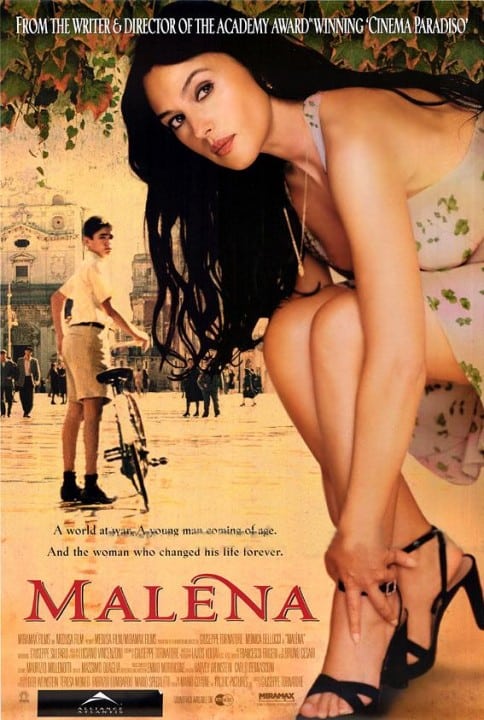
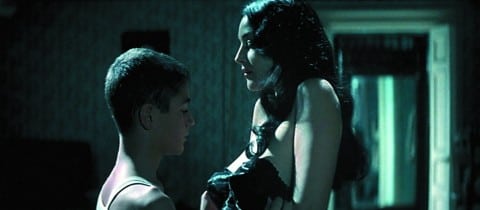
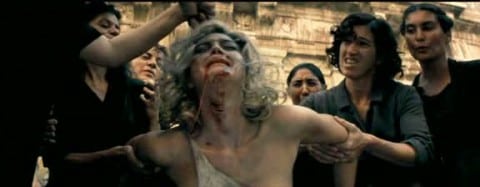



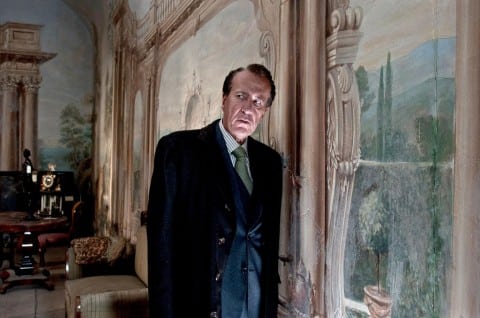
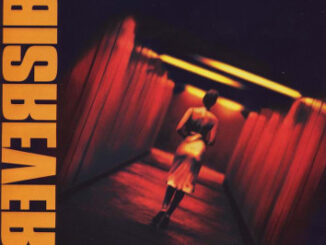
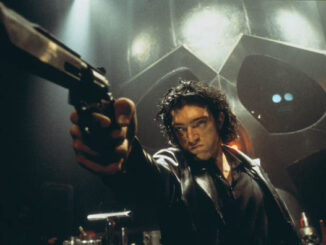
Be the first to comment